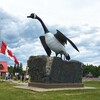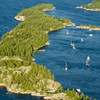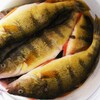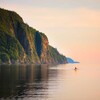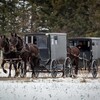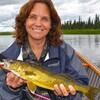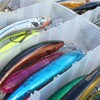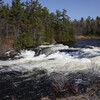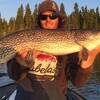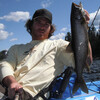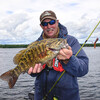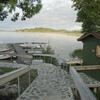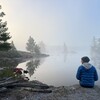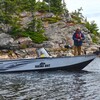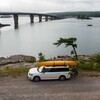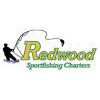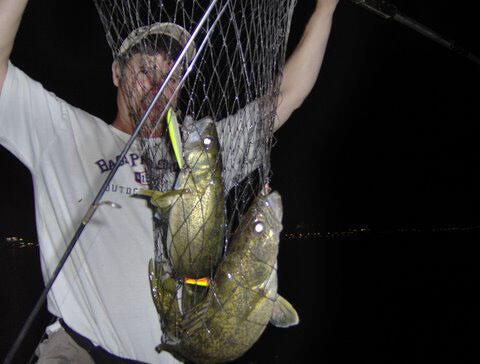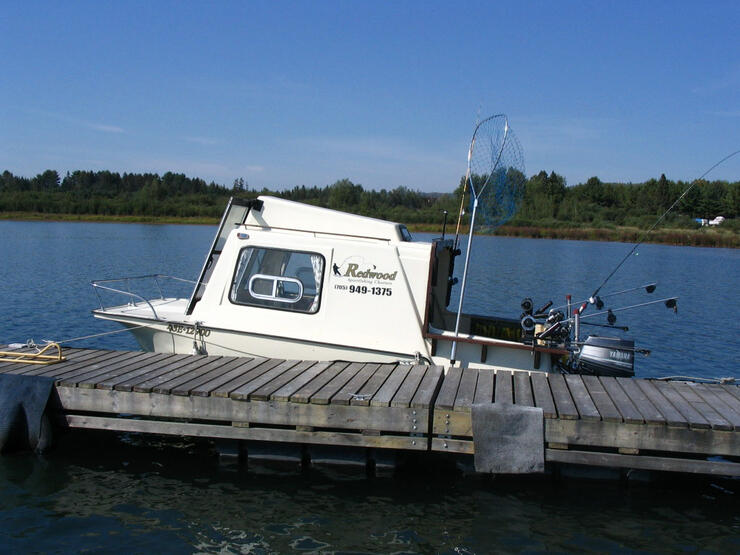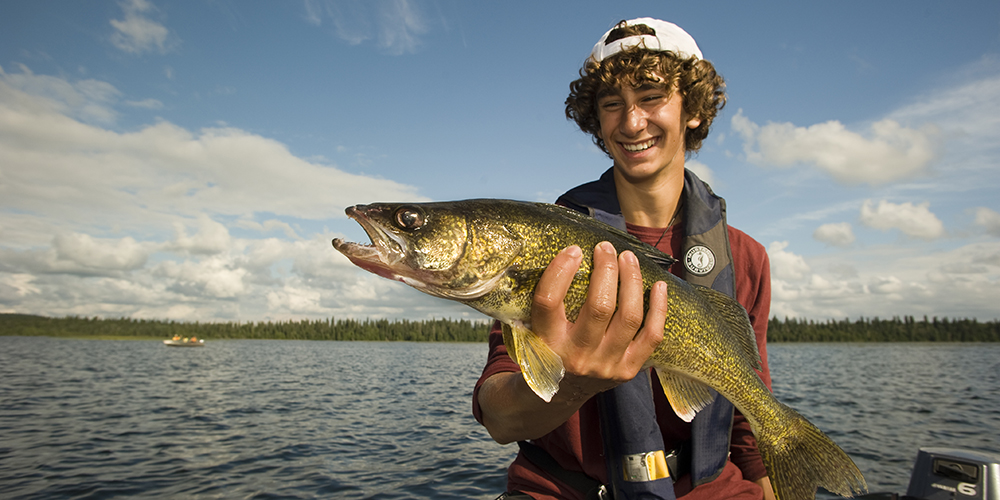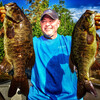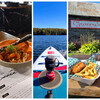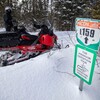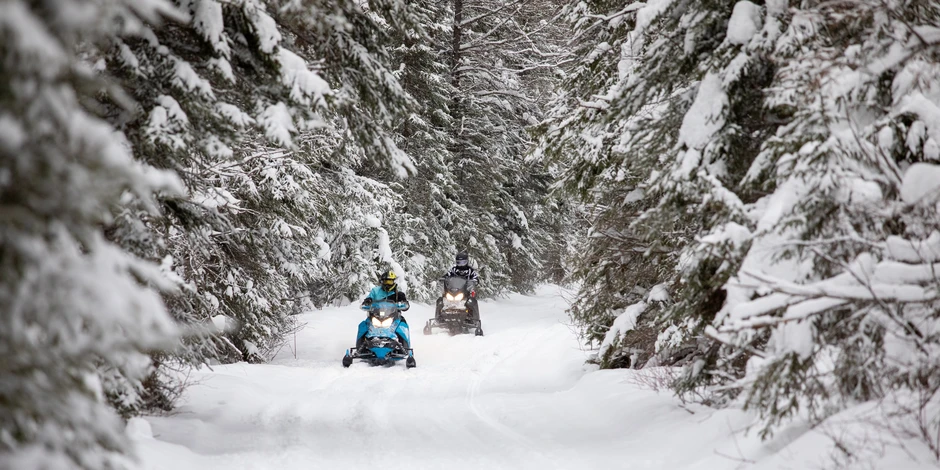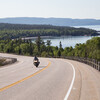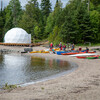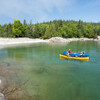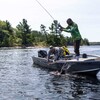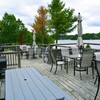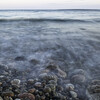
Please note this page may no longer be up to date. For new stories about Northern Ontario visit us here.
Rappin for Walleyes
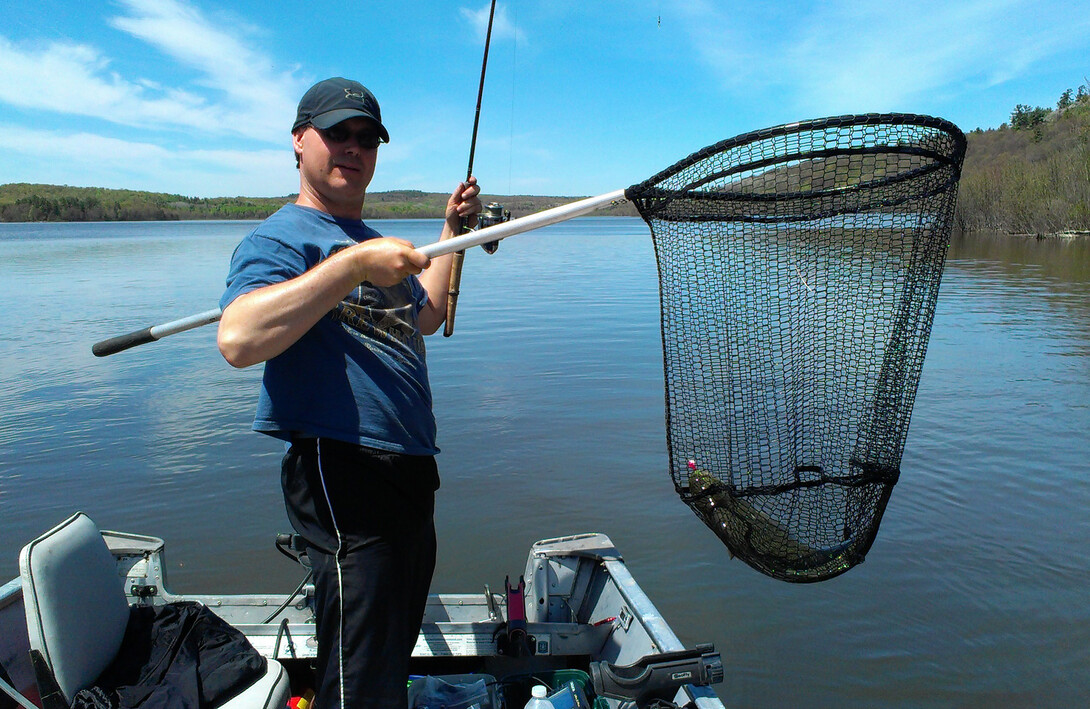
This could be a new hit or a forgotten oldie but for me, it's a familiar song and dance that I could play over and over again.
Many years ago a friend of mine, Timothy Maahs, had shown me a technique that he perfected on the St. Marys River in Sault Ste. Marie. He had figured out that the splashing and crashing sounds of fish jumping on the river were not only trout and salmon feeding on the surface at dark but schools of walleye cruising along the boardwalk and in other shallow rocky areas. Casting upstream in the current with spoons, jigs or harnesses would only lead to snags and losses, why not try casting something that floats and that you can control the depth by retrieval?
Fishing Gear And Tackle
Rapala has been around since the 1930s and is no stranger to many anglers' tackle boxes. If you do not own one, this article might change your mind (no promotion intended). Tim had found that carefully creeping along the shoreline or boardwalk after dark looking for current breaks or shallow rock/gravel flats and casting F-09 or F-11 Original Floating Rapala in chartreuse/silver, fire tiger or orange/gold was a deadly producer on this river system. I usually carry both sizes just in case they want something smaller or larger.
The Technique
Casting and letting the Rapala drift dead in the current and keeping a tight line or varying your retrieve speed, and barely breaking inches under the surface allows these cruising brutes to hone in and set up for an attack. You will hear the crash first then the weight (at this point set the hook) and if you miss, let it be and twitch it a bit because they usually aren't far, or cast towards where the fish broke the surface. We have limited out many times with this technique on a river that on the best of days stumps many experienced anglers. Also trolling/flatlining this plug works well and make sure you are totally outfitted (including working running lights) for night fishing because it can be dangerous, especially with current and buoys.
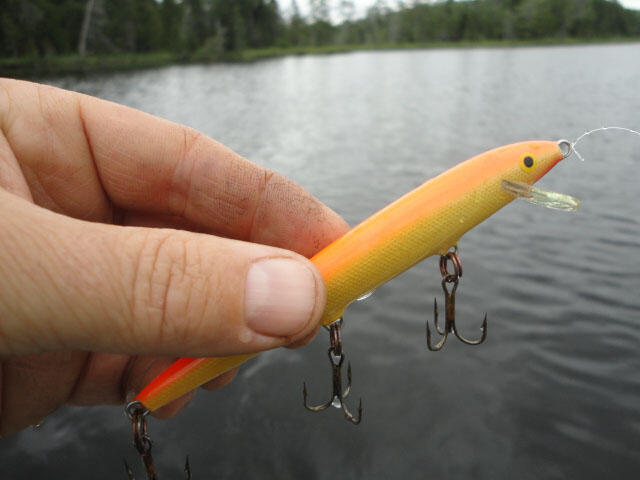
Where To Try This Technique
You may ask does this technique work in other areas. Yes, it does! A friend of mine, John Theriault, who owned a fly-in fishing company at the time in Chapleau, gave us an opportunity to give it a try. He had a cabin available on the Nemegosenda River system. This river system is full of walleye and pike but typically to most northern Ontario lakes the walleyes' main bite is in the evening with about an hour and a half time frame to fill a boat. But what happens after that? Guess what I found out? They move shallower chasing baitfish. Time to do some rappin'! We found a small river system that flowed into the main that had a small set of rapids where we could not go any further with the boat. We navigated our boat in the shallows slowly and quietly by flashlight and anchored in position so that the three of us could have casting room at the base of these rapids.
Generally, when you move into shallow areas with a boat, you will disturb the fish so do not expect immediate results, give it time for the fish to settle back in. After about a half-hour my friend Dave floats his rap and splash, crash, bang boom we were back in action. The walleye bite was on again in pitch darkness proving that this technique can extend your evening fish, plus the bugs are not as bad after the air cools. We all agreed not to get too excited because this could be dangerous with nine sets of treble hooks being thrown around so we picked designated spots to cast and when we were to land a fish all lures had to be pulled up and put out of harm's way.
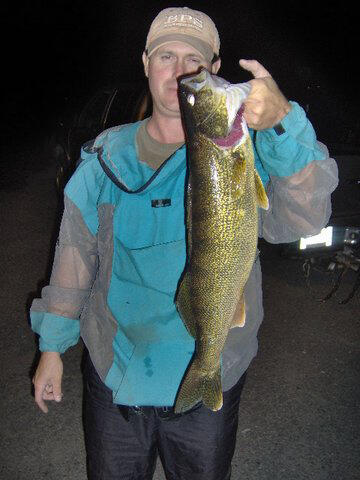
That night we caught and released another 20 walleyes, mind you, we didn't get back to the dock till 1 am, but this technique consistently worked every night (even after a cold front) until it was time to fly out.
When purchasing your fishing license, it's important to know what the daily catch limits are.
Final Thoughts
My advice to anyone that is going to try this technique is to have your running lights in full working condition and a few spare L.E.D flashlights (they don't disturb fish as much when you shine to net your fish). Also, memorize a system (points of land, tall trees or buildings) in order to make it back to the dock safely as things look extremely different after nightfall. Good Luck and keep your hooks sharp!
- Give us a call and we will arrange the trip of a lifetime. Dean, Redwood Sportfishing Charters
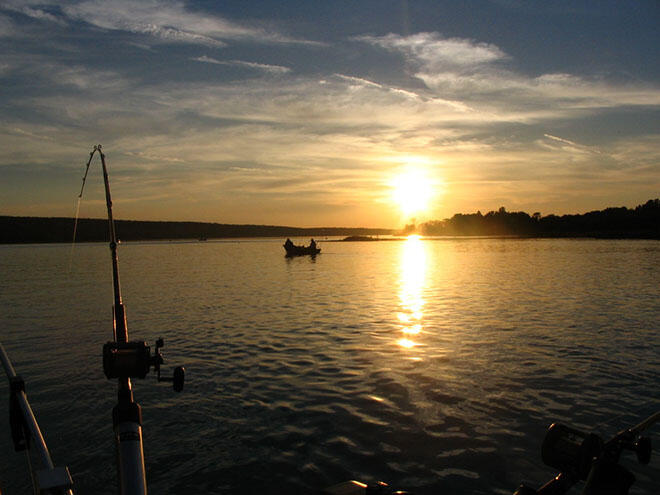
Owned and operated by Dean Lapham, Redwood Sportfishing Charters is a fully equipped, professional fishing experience that is not only enjoyable but affordable. Based on the world-famous St. Marys River, Redwood Sportfishing Charters offers 5 hours of morning and evening charters for Pacific Salmon (King, Pink, Coho) and Atlantic Salmon. If you're looking for something special, Redwood offers exclusive excursions for inland brook & speckled trout that you can catch on a spin cast or fly rod.
Five Things to Know When Booking with Redwood Sportfishing Charters:
1. Dean will fillet and freeze your catch for your convenience.
2. Charter Fishing is not limited to the St. Marys River but also downstream at the mouth of the Garden River and Lake George.
3. Special excursions for inland brook and speckled trout are on a conservation lake only with some of the small fish taken for shore lunches only -- which your guide will cook for you!
4. Know Your Seasons:
- Pacific Salmon begins in late July, with Kings showing up and then the Pinks in mid to late August, with late Cohos through the end of September.
- Atlantic Salmon starts mid-June and can last 4 - 6 weeks. This is a highly prized fish and is limited to one per person on a sportfishing license and zero on a conservation license. Brook trout season is from May to September.
5. Where you can stay: Book your stay in Sault Ste. Marie. There are many motels, hotels, campgrounds and cottage rentals that are affordable, and have the amenities you're looking for. You'll find restaurants close by, often within walking distance, and nearby shops to replenish your tackle box. The city is also home to many interesting attractions that you'll want to plan to see. Take a walk on the city's waterfront boardwalk.
Recommended Articles
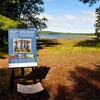
The Group of Seven in Algoma

9 Facts to Know about the Agawa Canyon Tour Train
